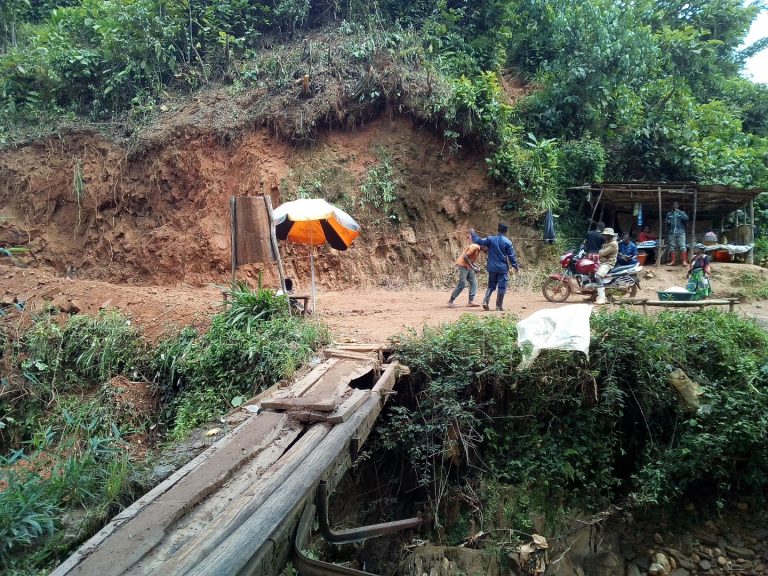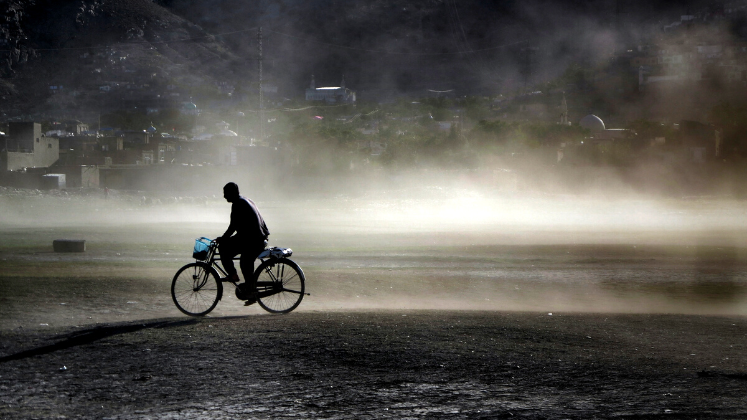Exploring the roots of militant Islam in South Asia and how it has grown to become a source of profound global alarm, Dilip Hiro tracks the growth of the jihadist movement from its first violent activities in Afghanistan in 1980 to the present day. Kenneth Martin would have liked to see more details and citations in some areas, but feels that overall the book remains very useful.
 Apocalyptic Realm: Jihadists in South Asia. Dilip Hiro. Yale University Press. February 2012.
Apocalyptic Realm: Jihadists in South Asia. Dilip Hiro. Yale University Press. February 2012.
Apocalyptic Realm by Dilip Hiro is a comprehensive look at the strategic and policy context in which South Asia’s jihadist and extremist groups operate. The author draws on his years of experience in the region, as well as his many related titles to offer a convincing, detailed and historical account of how domestic politics within Pakistan, Afghanistan and India are deeply interrelated to the overall struggle against terrorism in the region. As NATO looks towards the exit from Afghanistan in 2014, and both India and Pakistan step up their official involvement in Afghanistan’s future, this is a timely and necessary read for academics and policymakers interested in seeing the broader history of jihadist groups in the region.
One would assume from reading the title that the primary focus of the text is upon the jihadist groups themselves – their operations, growth, aims and organisation – but this is unfortunately not the case, as this would have been a major addition to the literature. What Hiro does, however, remains very useful – he tracks the growth of these groups in case study chapters focusing on South Asian states against the domestic and foreign policies of the last half century. Of particular note is his focus on the activities of internal security organisations – specifically the Inter-Services Intelligence (ISI) – in explaining the particular nature and strength of modern South Asian jihadist groups.
Hiro seems particularly interested in Afghanistan, and this is where the conceptual thrust of the book takes the reader, though interestingly not the bulk of the pages. Pakistan is written as a crucially important part of Afghan politics and the growth of Afghan extremists, but primarily as a birthplace for the Taliban and related groups. Pakistan’s policies on Afghanistan, and especially the occasionally wildly divergent plans and actions of the Pakistani intelligence agency, the ISI, are treated as the main driver of events throughout the region. This is an interesting point, as Pakistan’s internal politics and strife are put into ever sharper focus in current events.
While this is a useful book for anyone who is interested in either South Asia or security studies in general, there are a number of unfortunate and unnecessary weaknesses. As previously mentioned, the title is deeply misleading – for those who were (like myself) hoping for a in-depth examination of the jihadists groups as an object of study in and of themselves. These groups, instead, take a supporting role in what appears to be an attempt to merely chart the major foreign and domestic events of the three countries studied. The organisation of individual chapters, as well, can be deeply scattered – events are not discussed in chronological (or indeed sometimes any) or logical order, and the scene of the action shifts from state to state even within the case study based chapters. The focus on the book, writ large, is not consistent – what sticks out, for myself, is the author’s obsession with each individual’s facial hair style as what I can only assume to be an external indicator for that person’s jihadist bona fides or internal character.
Most worryingly serious however, are a marked lack of citations throughout the text, even for minute details of meetings taking place behind closed doors, or not publicly available information – while there are indeed some citations, this is not sufficient given the depth of detail that Apocalyptic Realm goes into. This, in addition to being somewhat suspect, also strongly curtails its usefulness as a stepping off point for future study that any interested reader may wish to do – the typical bibliography trawling so beloved of graduate students and researchers cannot truly occur here.
Overall, keeping in mind the above limitations, Apocalyptic Realm is a disappointing but still very useful book. Its promise was much greater than its delivery, but it still makes arguments regarding South Asia and jihadist groups that are relevant and insightful. The central thesis, that jihadist groups are deeply affected by events in neighbouring states in South Asia – that we must look at the region as a whole, instead of being blinded by state borders – is an important one as we head into a more uncertain future in the subcontinent.
——————————————————————————————-
Kenneth Martin is a PhD candidate in the Department of Political Science at Concordia University, in Montreal, Canada, focusing on non-state armed groups, South Asia, and the contestation and construction of the state. He is also a Fellow of the US Army’s Peacekeeping and Stability Operations Institute, and a serving Canadian Forces infantry officer. Read reviews by Kenneth.






